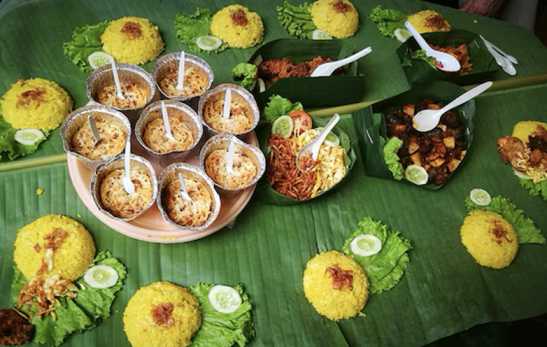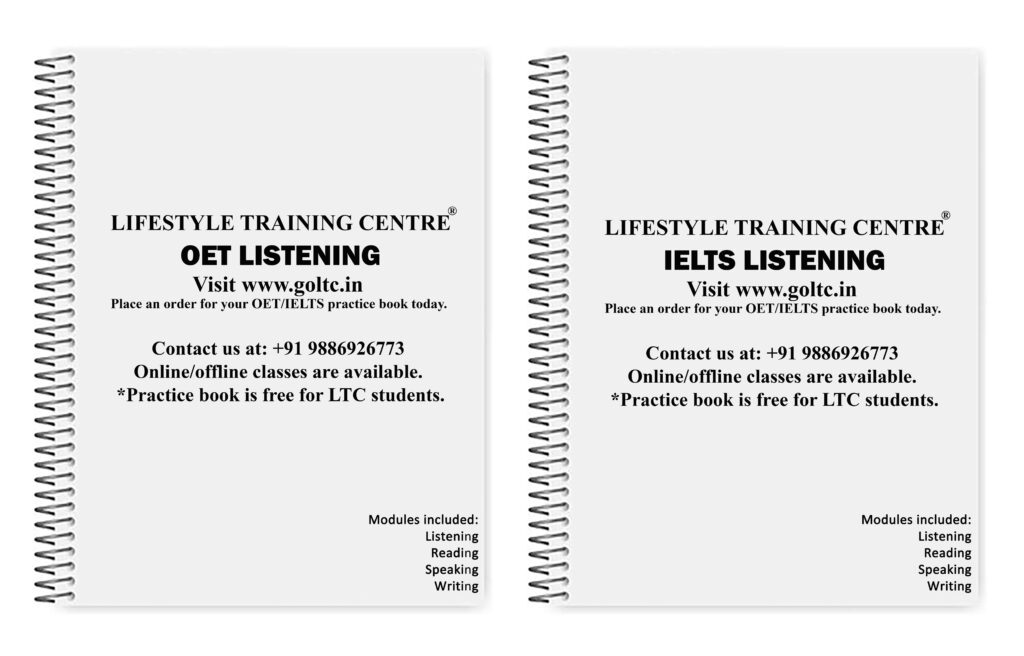Task 1
1. How often do you use technology in your daily life?
I use technology daily—it’s become my bread and butter for both work and leisure. From checking emails to streaming videos, it’s an integral part of my routine. However, I ensure I’m not glued to my devices all day, as that can be counterproductive. The ability to access information at the click of a button is a game-changer. Without technology, life would feel like living in the Stone Age.
2. What technological device do you use the most, and why?
My go-to gadget is my smartphone. It’s like a Swiss Army knife, serving as my camera, GPS, and personal assistant. I rely on it to stay connected around the clock, whether through calls or social media. Its portability and multifunctionality make it indispensable. That said, I try not to let it take over my life, striking a balance between the virtual world and reality.
3. How has technology changed the way people communicate?
Gone are the days of handwritten letters and landline calls. Now, people communicate through instant messaging and video calls, which make interactions lightning fast and efficient. However, this has also led to digital burnout and less face-to-face interaction, which can harm relationships. It’s a double-edged sword—while it bridges distances, it sometimes creates an emotional disconnect.
4. Do you think technology has improved education?
Absolutely! The advent of e-learning has made education accessible to people from all walks of life. Students can now learn at their own pace, which is a blessing in disguise for those with busy schedules. Resources like online courses and virtual labs have made hands-on learning possible from home. However, over-reliance on gadgets might throw traditional learning methods out the window, which is a concern.
5. What are some of the drawbacks of technology?
While technology has revolutionised our lives, it’s not without its pitfalls. One major downside is cybersecurity threats, as personal data is often at risk. Another is screen addiction, which affects mental health and productivity. Additionally, too much reliance on automation can lead to a lack of critical skills in individuals. It’s vital to strike a balance to avoid these side effects.
6. How do you think technology affects relationships?
Technology can act as both a boon and a bane for relationships. On one hand, it allows people to stay connected across miles and maintain bonds through video calls and texts. On the other, excessive screen time can drive a wedge between loved ones. All work and no play, especially when it comes to family, can strain relationships. It’s important to unplug and spend quality time with each other.
7. What do you think about the future of artificial intelligence (AI)?
AI is a double-edged sword. On one hand, it’s paving the way for innovation, automating tasks, and improving healthcare. On the other, it raises concerns about job displacement and ethical dilemmas. If regulated properly, AI could truly be a blessing in disguise. However, letting the genie out of the bottle without safeguards could lead to unforeseen challenges.
8. Can you live without technology for a day?
Living without technology for a day would be a bitter pill to swallow but not impossible. It might feel like being cut off from the world, but it could also be a breath of fresh air. I’d likely spend more time outdoors or engaging in hobbies like reading or cooking. While it’s a challenge, it’s a reminder not to let technology rule the roost.
9. How does technology influence the workplace?
Technology has transformed the workplace, making it more efficient and connected. Remote working tools and cloud-based systems have made collaboration easier than ever. On the downside, automation has taken the lion’s share of repetitive jobs, creating challenges for workers to stay relevant. The key to survival is adapting to these changes through constant learning.
10. What do you think about children using technology?
Children’s use of technology is a hot-button issue. On one hand, it helps them develop skills and access educational tools. On the other, excessive screen time can lead to health issues and reduced creativity. Parents must ensure technology is used in moderation and with the right guidance to make it a force for good.
List of vocabulary used: (Task 1)
- Integral – Essential or necessary.
- Boon – A thing that is helpful or beneficial.
- Bane – A cause of great distress or annoyance.
- Streaming – Transmitting or receiving data continuously over the internet.
- Glued – Fixed or stuck, often used to describe excessive focus or attention.
- Indispensable – Absolutely necessary or essential.
- Portability – The quality of being easily carried or moved.
- Multifunctionality – The ability to perform multiple functions.
- Virtual – Existing in digital form or online.
- Disconnect – A lack of understanding or connection.
- Advent – The arrival or beginning of something significant.
- Automation – The use of machines to carry out tasks without human intervention.
- Cybersecurity – Measures taken to protect systems and data from digital attacks.
- Revolutionised – Drastically changed for the better.
- E-learning – Learning conducted via electronic media, typically online.
- Ethical – Relating to moral principles or values.
- Screen addiction – Excessive use of devices leading to dependence.
- Remote – Located or working at a distance from the usual place.
- Collaboration – Working together to achieve a common goal.
- Educational – Intended to teach or educate.
- Moderation – The avoidance of extremes or excess.
- Facilitate – To make an action or process easier.
- Productivity – The effectiveness of effort, especially in terms of output.
- Innovative – Featuring new and creative ideas.
- Dependence – The state of relying on something for support.
- Obsolete – Outdated or no longer in use.
- Efficiency – The ability to accomplish something with minimal waste of resources.
- Overexposure – Excessive exposure to something.
- Interconnected – Mutually connected.
- Resilience – The capacity to recover quickly from difficulties.
Idioms
- Boon or bane – Something that can be both a benefit and a disadvantage.
- Bread and butter – A vital or primary aspect.
- Glued to (something) – Paying excessive attention to something.
- Click of a button – Something that happens instantly or effortlessly.
- Living in the Stone Age – Being outdated or old-fashioned.
- Swiss Army knife – Something with multiple functionalities.
- Connected around the clock – Always available or in contact.
- Throw out the window – To discard or get rid of something.
- Blessing in disguise – Something that seems bad but turns out to be good.
- Gone are the days – Referring to something no longer in use.
- Double-edged sword – Something with both positive and negative effects.
- Drive a wedge – To create a division or disagreement.
- Boil down to – To simplify or reduce to the main point.
- Take over (one’s life) – To dominate or control completely.
- Unplug – To disconnect from technology or devices.
- Rule the roost – To be in charge or dominant.
- Let the genie out of the bottle – To release something powerful or uncontrollable.
- Cut off from the world – To feel isolated or disconnected.
- Breath of fresh air – Something refreshing or new.
- Hot-button issue – A controversial or sensitive topic.
- Force for good – Something beneficial or positive.
- Drop the ball – To make a mistake or fail.
- Call the shots – To be in charge or make decisions.
- Not rocket science – Something that is simple or straightforward.
- A game changer – A significant innovation or discovery.
- The tip of the iceberg – A small part of a much larger issue.
Phrases
- Bread and butter of my routine – Integral to daily activities.
- Streaming videos – Watching content online without downloading.
- Instant messaging – Text communication via the internet in real-time.
- Virtual world – Digital or online spaces.
- Digital burnout – Exhaustion caused by overuse of technology.
- Hands-on learning – Practical learning by doing.
- Cybersecurity threats – Risks to systems and data from hackers.
- Take the lion’s share – To take the largest portion.
- Paving the way – Making progress or creating opportunities.
- Remote working tools – Software and devices enabling work from a distance.
- Educational tools – Resources used for teaching or learning.
- Quality time – Time spent in meaningful interaction.
- Cloud-based systems – Technology services hosted on the internet.
- Around the clock – All the time, continuously.
- Multifunctionality of smartphones – Describing multiple uses of devices.
- Plugged into the digital age – Fully engaged with modern technology.
- Balancing act – Managing multiple responsibilities effectively.
- Fuel for innovation – Something that encourages creativity and new ideas.
- Behind the scenes – Working in a way that is not visible to others.
- Think outside the box – To approach a problem in a creative or unconventional way.
TASK 2
Topic: A Valuable Lesson
– Question: Describe a valuable life lesson you’ve learned.
– You should say:
– What was the lesson, and when did you learn it?
– How did you come to learn this lesson?
– Why is it important, and how has it affected your life?
– Have you shared this lesson with others?
Task 3 follow-up questions and answers
1. How do challenges help in building resilience?
Challenges often act as stepping stones to success. Facing obstacles forces us to think on our feet and develop solutions. For instance, dealing with setbacks teaches us to roll with the punches and remain persistent despite adversity. Overcoming difficulties is what shapes our ability to adapt and tackle future problems head-on. What doesn’t break you makes you stronger, and each challenge faced becomes a part of our personal armour. Resilience is not built overnight; it’s a marathon, not a sprint, requiring consistent effort and courage.
2. Why do people often reflect on past mistakes when making decisions?
Reflecting on past mistakes is like holding a mirror up to yourself. It allows individuals to identify patterns and avoid repeating errors. Hindsight is 20/20, and learning from past experiences equips people to make more informed choices. It’s also a way to stay one step ahead of challenges that might arise again. This process of reflection helps us build confidence in our decisions and ensures that we evolve rather than stay stuck in a cycle of repeated errors. After all, knowledge gained from failure is knowledge well-earned.
3. Do you think formal education is enough to prepare people for real-life situations?
While formal education lays the groundwork, it’s not a one-size-fits-all solution. Life skills such as managing relationships or handling failures are learned in the school of hard knocks. Real-life experiences teach things like thinking outside the box or understanding people, which textbooks often miss. A combination of both formal education and practical exposure is ideal. As the saying goes, “all work and no play makes Jack a dull boy” – practical experiences make learning holistic and enjoyable. Education needs to embrace creativity and critical thinking to truly prepare individuals for the real-world battlefield.
4. How does the role of a mentor contribute to personal growth?
A mentor often serves as a guiding light, helping individuals navigate life’s complexities. Their experience can save us from reinventing the wheel, offering advice that is both practical and inspiring. Mentors also challenge us to step out of our comfort zone and explore our full potential. Two heads are better than one, and their support often accelerates growth. Having a mentor isn’t just about learning new skills; it’s about fostering confidence and receiving encouragement when the going gets tough. A good mentor knows how to light a fire in your belly, motivating you to aim higher.
5. Why are some lessons harder to accept than others?
Some lessons are a bitter pill to swallow because they force us to confront uncomfortable truths. Realising a personal flaw or accepting failure can be emotionally taxing. However, every cloud has a silver lining, and these difficult lessons often lead to profound personal transformation once accepted. They force us to reflect deeply and face the music, which is not always pleasant but is ultimately rewarding. Often, these lessons take time to sink in because they require us to shed old habits and turn over a new leaf, which is rarely an easy task.
6. Can learning from others be as effective as personal experiences?
Learning from others is often like getting a shortcut to wisdom. Observing someone else’s journey, whether their triumphs or pitfalls, allows us to benefit without facing the same trials. While personal experiences are impactful, they can be time-consuming and painful. Why make the same mistake twice if you can learn from someone who’s been there? Still, there’s a balance – sometimes, we need to take the plunge ourselves to fully grasp the depth of a situation. Wisdom shared by others becomes most valuable when combined with our lived experiences.
7. How can societal norms influence the way people approach challenges?
Societal norms often act as an invisible hand, shaping our attitudes toward challenges. For instance, cultures that celebrate individualism may encourage people to take the bull by the horns, while collectivist societies emphasise teamwork. When in Rome, do as the Romans do, as these norms often dictate how we perceive success and failure. Over time, societal expectations can either motivate or stifle innovation, depending on how open a culture is to risk-taking. Challenges are often easier to face when communities encourage breaking the mould and celebrating unconventional approaches.
8. What role does storytelling play in teaching life principles?
Storytelling is a universal bridge, connecting people through relatable experiences. A well-told story can strike a chord, making complex ideas easier to grasp. It also allows people to see the big picture, drawing lessons from metaphors, parables, and narratives that stay with them for a lifetime. Stories have the unique power to speak to the heart, often embedding values and morals in a way that facts alone cannot. They also help preserve traditions and wisdom, serving as a thread that ties generations together.
9. How does failure shape a person’s decision-making skills?
Failure teaches us to look before we leap. It encourages a more analytical approach, as we’re often wary of repeating mistakes. Learning from failure helps us develop a thick skin, making us more resilient and confident. Every misstep is a lesson in disguise, and this wisdom often sharpens our decision-making over time. Overcoming failure also instils humility, reminding us that even the best-laid plans can falter, but perseverance always pays off. Ultimately, failure builds a backbone of courage, essential for tackling life’s uncertainties.
10. Why is self-reflection important for personal growth?
Self-reflection acts as a compass for the soul, helping us identify what truly matters. It’s a way to separate the wheat from the chaff, understanding what we’ve done well and where we’ve fallen short. By taking time to pause and ponder, we can set meaningful goals and move forward with clarity. Reflecting on our actions helps us gain a bird’s-eye view of our lives, ensuring that we remain on the right track. Self-reflection isn’t just introspection; it’s also about acting on what we learn and becoming the best version of ourselves.
List of vocabulary used: (Task 3)
- Stepping stones – a means or stage towards achieving a goal.
- Resilience – the capacity to recover quickly from difficulties.
- Obstacles – things that block progress or achievement.
- Setbacks – problems or delays that hinder progress.
- Adversity – hardship or difficulty.
- Armour – protection or defence.
- Marathon – a long and arduous process or effort.
- Hindsight – the understanding of a situation after it has happened.
- Knowledge – information and skills acquired through experience or education.
- Foundation – the underlying basis or principle.
- Relationships – connections or associations between people.
- Textbooks – educational books used for learning.
- Creativity – the ability to create or invent new things.
- Critical thinking – the ability to think clearly and rationally, understanding the logical connection between ideas.
- Mentor – an experienced and trusted advisor.
- Guiding – leading or directing.
- Comfort zone – a situation where a person feels safe and at ease.
- Confidence – trust or belief in one’s abilities.
- Encouragement – the act of giving support or confidence.
- Flaw – an imperfection or weakness.
- Failure – the lack of success or the inability to meet expectations.
- Reflection – careful thought or consideration.
- Pitfalls – hidden dangers or difficulties.
- Wisdom – the ability to make sound decisions based on experience.
- Journey – a process of personal development or change.
- Cultural – relating to the ideas, customs, and social behaviour of a society.
- Innovation – the introduction of new ideas or methods.
- Traditions – customs or beliefs passed from one generation to the next.
- Narratives – stories or accounts of events or experiences.
- Humility – a modest or low view of one’s importance.
- Courage – the ability to face fear or difficulty.
- Introspection – the examination of one’s own thoughts and feelings.
- Clarity – the quality of being clear or easily understood.
- Version – a particular form or variant of something.
- Ponder – to think deeply about something.
- Perseverance – persistence in doing something despite difficulty or delay.
Idioms List:
- Stepping stones to success – stages or processes that lead to achieving a goal.
- Think on your feet – to think and respond quickly.
- Roll with the punches – to adapt to difficult circumstances.
- What doesn’t break you makes you stronger – difficulties make you more resilient.
- Marathon, not a sprint – success requires long-term effort, not a quick rush.
- Holding a mirror up to yourself – reflecting on one’s own behaviour or actions.
- Hindsight is 20/20 – understanding is clearer after the event.
- Stay one step ahead – to be prepared for future challenges.
- Knowledge gained from failure is knowledge well-earned – failure is a valuable learning experience.
- One-size-fits-all – a solution that works in every situation.
- In the school of hard knocks – learning from difficult or painful experiences.
- Thinking outside the box – thinking in a creative and unconventional way.
- All work and no play makes Jack a dull boy – one should balance work and leisure.
- Real-world battlefield – the challenges faced in real life, especially in work or business.
- Guiding light – a source of inspiration or guidance.
- Reinventing the wheel – to waste time trying to create something that already exists.
- Step out of your comfort zone – to challenge yourself to do something unfamiliar.
- Two heads are better than one – collaboration leads to better outcomes.
- Light a fire in your belly – to motivate or inspire someone to act.
- A bitter pill to swallow – an unpleasant truth or situation.
- Every cloud has a silver lining – there is always something positive in a bad situation.
- Face the music – to confront the consequences of one’s actions.
- Turn over a new leaf – to start fresh and change for the better.
- Getting a shortcut to wisdom – learning from others’ experiences.
- Why make the same mistake twice – learning from others to avoid repeating errors.
- Take the plunge – to take a risk or try something new.
- Invisible hand – an unseen force or influence.
- Take the bull by the horns – to confront a difficult situation boldly.
- When in Rome, do as the Romans do – adopt the behaviour or customs of the place you are in.
- Breaking the mould – to do something in a new and different way.
- Strike a chord – to evoke a strong feeling or emotion.
- See the big picture – to understand the overall situation or perspective.
- Speak to the heart – to communicate in an emotionally moving way.
- A thread that ties generations together – something that connects different generations.
- Look before we leap – to think carefully before acting.
- Develop a thick skin – to become more resilient to criticism or difficulty.
- Every misstep is a lesson in disguise – failures are disguised opportunities for learning.
- A backbone of courage – having the strength and bravery to face challenges.
- Compass for the soul – a guiding principle for one’s life.
- Separate the wheat from the chaff – to distinguish between what is valuable and what is not.
- Pause and ponder – to take time to reflect carefully.
- A bird’s-eye view – an overall perspective of a situation.
- Become the best version of ourselves – to reach one’s full potential.
Phrases List:
- Stepping stones to success – Elements that lead to achieving success.
- Think on your feet – React quickly and effectively to situations.
- Roll with the punches – Adapt to difficult circumstances with resilience.
- What doesn’t break you makes you stronger – Adversity increases personal strength.
- Marathon, not a sprint – Success requires enduring effort rather than quick bursts.
- Holding a mirror up to yourself – Reflect on one’s own actions or behaviours.
- Hindsight is 20/20 – Understanding is clearer after events have passed.
- Stay one step ahead – Remain prepared for future challenges.
- Knowledge gained from failure is knowledge well-earned – Failure provides valuable lessons.
- One-size-fits-all – A solution that is expected to work in every case.
- In the school of hard knocks – Life lessons learned through experience.
- Thinking outside the box – Creative and unconventional thinking.
- All work and no play makes Jack a dull boy – Too much work without relaxation is harmful.
- Real-world battlefield – The challenges or struggles encountered in real life.
- Guiding light – A source of guidance or inspiration.
- Reinventing the wheel – Trying to create something that already exists.
- Step out of your comfort zone – Challenge oneself by doing something unfamiliar.
- Two heads are better than one – Collaboration often leads to better outcomes.
- Light a fire in your belly – Inspire someone to take action or strive for more.
- A bitter pill to swallow – An unpleasant or difficult truth to accept.
- Every cloud has a silver lining – There’s always a positive aspect in a bad situation.
- Face the music – Confront the consequences of one’s actions.
- Turn over a new leaf – Begin anew and change one’s behaviour or approach.
- Getting a shortcut to wisdom – Benefiting from others’ experiences without facing the same difficulties.
- Why make the same mistake twice – Avoid repeating mistakes by learning from others.
- Take the plunge – Take a risk or try something new.
- Invisible hand – A hidden influence or force guiding events or actions.
- Take the bull by the horns – Tackle a difficult situation directly.
- When in Rome, do as the Romans do – Adapt to the customs and behaviour of the environment you are in.
- Breaking the mould – Doing something in an innovative or unconventional manner.
- Strike a chord – Elicit a strong emotional response.
- See the big picture – Consider the overall situation or broader context.
- Speak to the heart – Communicate in a deeply emotional way.
- A thread that ties generations together – Something that connects different generations.
- Look before we leap – Think carefully before taking action.
- Develop a thick skin – Become more resilient to criticism or challenges.
- Every misstep is a lesson in disguise – Failure is a hidden opportunity for learning.
- A backbone of courage – The strength and bravery to face challenges.
- Compass for the soul – A guiding principle for one’s personal life.
- Separate the wheat from the chaff – Distinguish between valuable and worthless elements.
- Pause and ponder – Take time to reflect deeply.
- A bird’s-eye view – An overview or a comprehensive perspective of a situation.
- Become the best version of ourselves – Achieve personal growth and reach one’s full potential.
IELTS Speaking Task Topics
Click on any topic to explore more!
Names

Learn about the importance of names and their cultural significance.
Study / Job

Discuss various aspects of studying and working in different fields.
Hometown

Explore the charm of your hometown and its unique features.
Accomodation

Understand various types of accommodation and living situations.
Weather

Learn about how weather influences daily life and activities.
Time

Discuss the concept of time, its importance, and time management.
Television

Talk about the role of television in modern entertainment.
Museum

Discuss the cultural importance of museums and historical exhibits.
Holidays

Explore the significance of holidays and different celebrations.
Films

Learn about the impact of films on culture and society.
Leisure Time

Discuss how leisure activities impact personal well-being.
Sport

Talk about the role of sports in health, entertainment, and culture.
Vegetables and Fruits

Discuss the health benefits and importance of fresh produce.
Maths

Explore the role of mathematics in various aspects of life.
Sky

Discuss the beauty and scientific significance of the sky.
Clothes&Fashion

Explore how clothing reflects culture and personal expression.
Weekend

Discuss the importance of weekends and ways people relax.
Reading

Learn about the importance of reading and various reading habits.
Sleep

Explore how sleep impacts physical and mental well-being.
Trees&Plants

Discuss the environmental and health benefits of plants.
Newspaper

Discuss the evolving role of newspapers in the digital age.
Texting

Explore the role of text messaging in modern communication.
Memorising

Learn techniques for improving memory and memorization.
Travelling

Discuss the importance and impact of traveling in modern society.
Communication

Explore the modes and significance of communicating well
Letter&Email

Explore the differences and significance of letters vs. emails.
Swimming

Discuss the benefits of swimming for health and fitness.
Snacks

Explore the role of snacks in daily nutrition and lifestyle.
Photography

Discuss photography’s cultural and artistic significance.
Help

Talk about the importance of offering and receiving help.
History

Discuss historical events and their impact on modern society.
Handwriting

Explore the significance of handwriting in education and culture.
Music

Learn about the influence of music on emotions and society.
Colours

Discuss how colours affect perception and mood.
Teachers

Explore the role of teachers in shaping students’ futures.
Being Alone

Talk about the experience and benefits of spending time alone.
Teamwork

Learn the importance of teamwork in professional and social contexts.
Countryside & City

Explore the charm and benefits of living in the countryside.
Social Media

Discuss the impact of social media on society and relationships.
Friends

Explore the importance of friendships in life.
Artificial Intelligence (AI)

Talk about the future of AI and its role in society.
Climate Change

Discuss the causes and consequences of climate change.
Transportation

Explore different modes of transportation in your area.
Sustainable Transportation

Explore ways to make transportation more environmentally friendly.
Space Exploration

Learn about the latest advancements in space exploration.
Shopping

Explore how shopping influences culture and the economy.
Modern Technology

Discuss how modern technology is reshaping society.
Technology

Learn about the role of technology in everyday life.
Sustainable Living

Explore ways to live sustainably for the future of the planet.
Globalisation

Learn about the effects of globalisation on society and economies.
Global Warming

Discuss the causes, effects, and solutions to global warming.
Gender Equality

Explore the importance of gender equality in modern society.
Health and Fitness

Discuss the importance of maintaining a healthy lifestyle.
Renewable Energy

Learn about renewable energy sources and their impact on the environment.
Cultural Traditions in Kerala

Explore the unique cultural traditions of Kerala, your hometown.
Cultural Traditions in Your Country

Learn about the cultural traditions in your country.
Education System

Discuss the education system in your country and its effectiveness.
Traditional Cuisine

Explore the significance of traditional cuisines in your culture.
Do you need printed IELTS/ OET practice material? Place your order today. Available now for just Rs: 1,100 (including shipping all across India) Contact us at our WhatsApp number: +91 9886926773 to place your order. (Free for LTC students)

We hope this information has been valuable to you. If so, please consider a monetary donation to Lifestyle Training Centre via UPI. Your support is greatly appreciated.

Would you like to undergo training for OET, PTE, IELTS, Duolingo, Phonetics, or Spoken English with us? Kindly contact us now!
📱 Call/WhatsApp/Text: +91 9886926773
📧 Email: mail@goltc.in
Visit us in person by following the directions on Google Maps. We look forward to welcoming you to the Lifestyle Training Centre.
Follow Lifestyle Training Centre on social media:
Thank you very much!
